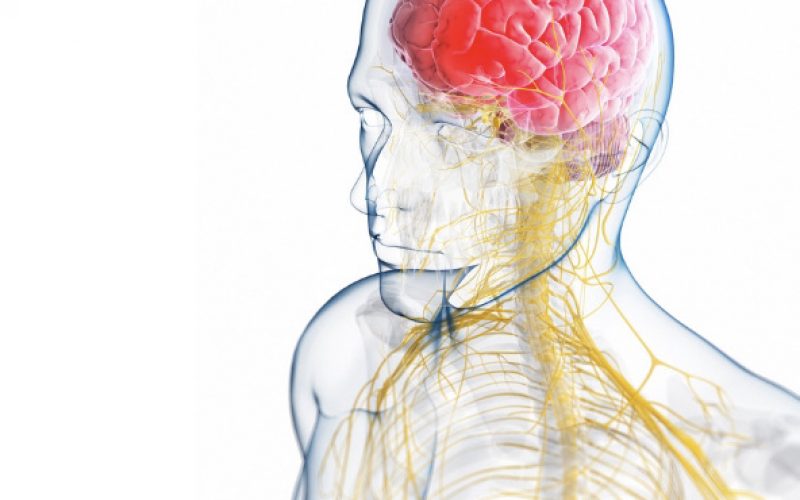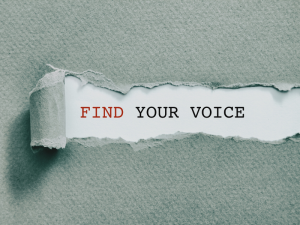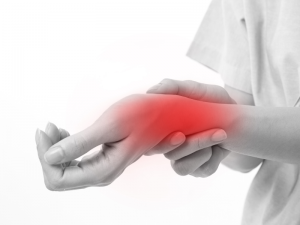Like a super spy, the vagus nerve wanders around the body, reporting back to the brain subconsciously (secretly) with constant updates on what’s going on in our body. It is part of our protective stress response, noticing facial expressions, responding to people’s voices and monitoring our internal organs.
Dr Stephen Porges’s work established the Polyvagal Theory, and advanced doctors’ understanding of vagal nerve activation in the unconscious fight, flight freeze, or fainting response to differing situations. His work offers exciting developments in how we can become more resilient to the stressors of 21C life. Dr Porges identified how branches of the vagus nerve calm the body, but they do so differently. The previous post explained how and why vagus nerve problems can become detrimental to our health and wellbeing (the vagus nerve, explained) and why we need our vagal nerve to be well-toned, just like our muscles.
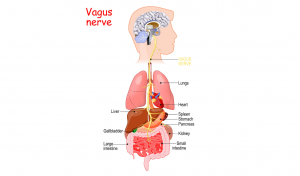
Building resilience by helping your vagus nerve.
Gut health
There is mounting interest in how gut health can influence mental wellbeing. You may have heard of the gut-brain axis; two-way communication between our brain and body. Scientists discovered the vagus nerve continuously monitors the gut microbiome; the colony of microorganisms in the digestive system made up of bacteria, viruses and fungi.
The vagus carries feedback from the gut to the brain stem, which signals the brain area responsible for regulating emotions; the hypothalamus and limbic system. When the gut microbiome is out of balance, medically called Dysbiosis, it can cause disorders such as inflammatory bowel disease (IBD). Or ulcerative colitis and affect our ability to manage stress.

Professor Phil Burnet’s groundbreaking study from Oxford University demonstrated that taking a probiotic supplement containing healthy bacteria can also improve mental health; mood, and mild depression.
Tip: You can also boost digestive health and gut microbiome by eating prebiotic foods; such as; bananas especially if they are not overripe, asparagus, garlic, onions, leeks, chicory root and Jerusalem artichoke. Or fermented foods such as kimchi and sauerkraut. Alternatively, taking a probiotic supplement may be helpful.
Meditation
Studies show that people who meditate regularly have greater resilience to stress, and better vagal tone too. Meditation and mindfulness practice is now widespread and used in many clinical settings to treat a wide range of condition from IBS, depression and chronic pain.
Tip: The breathing exercise in the previous post is a useful starting point (the vagus nerve, explained)
Cryotherapy
Studies have shown that getting the entire body cold has been successfully used to treat some depressive and anxiety disorders. Literally chilling out is useful for the vagus nerve, as it slows the activation of the sympathetic nervous system; our fight-or-flight response
Tip: Splashing your face the cold water, taking a cold shower, jumping into your local Lido or any sudden cold exposure will increase vagus nerve activation, stimulating it to help the body adjust to the drop in temperature halting the sympathetic nervous system, and increasing parasympathetic system.

Talking, singing, humming and laughing
Like the sing-song rhythm of speech (prosodic talking), they are sometimes used to calm and soothe babies. Altering the tone of speech works for adults, too. For example, guided meditations apps, often use soft, slow rhythmical tones of speaking to coax the listener’s brain into a relaxed state more quickly than a normal conversational tone would achieve.
Tip: With a little self-practice we can train the mind to perceive calm and safety, by choosing cues or trigger words, using visualisations or sound to help create a “secure imagined space” which can encourage feelings of contentment and peace. Imagining or using smell can also be helpful; essential oils, candles or fragrance, sound and music
Prosodic use of the voice is a tool used by some trauma therapists and clinical hypnotherapists which can halt the stress, anxiety, fear responses from kicking in, and train the mind and body to be better able to bounce back from any future episodes of stress.
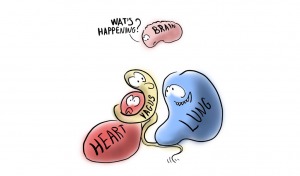
Medical treatment of the vagus nerve
Just in case this is all sounding a tad new age, and woo woo. NICE (The National Institute for Health and Clinical Excellence) recommends treating the vagus nerve of people with epilepsy and challenging to manage depressive disorders. Vagus nerve stimulation (VNS) appears to help reset chemical imbalances in the brain’s mood centres and changes brain wave patterns, reducing or eliminating symptoms.
Treatment with VNS involves surgical implantation of a pacemaker-like device in the chest. They connect a wire thread under the skin to the left vagus nerve and the device is then programmed to deliver electric current in continuous cycles to the nerve for a set period. Doctors aren’t entirely sure how stimulation of the vagus nerve eases symptoms of depression, but it seems to help some people.
The vagus nerve and osteopathy
Osteopaths have long recognised a relationship between stress, health, and disease; many people visit us with low vagal tone or sympathetic overdrive symptoms without actually realising it. They report various interconnected problems including pain, anxiety, the inability to relax, acid reflux, insomnia, fatigue, headaches, poor digestion, IBS or low mood.
An osteopathic health screen and physical examination checks for any mechanical factors which may be irritating the vagus nerve; the neck, jaw and TMJ or shoulders and upper back where tight muscles can constrict it. We would assess the internal organs, such as the diaphragm and gut.
Treatment aims to help patients to find balance or homeostasis in the body. Gentle non-painful osteopathic treatment will re-engage the body’s natural healing process via the parasympathetic nervous system. Which allows the body to improve its management of blood pressure, better regulate heart rate, suppress inflammation, boost the immune system and reduce pain.
Many patients report the wellness benefits of treatment including relaxation, better quality sleep, improved ability to cope with stress, and restore resilience. Supporting people to wellness not just treating symptoms has been a fundamental aspect of osteopaths work for over 100 years.
Summary
Whether you spend a few minutes yelping in a cold shower or learn some simple relaxation or meditation techniques, or book some hands-on treatment, there are many ways to support the vagus nerve to improve your health and wellbeing.

